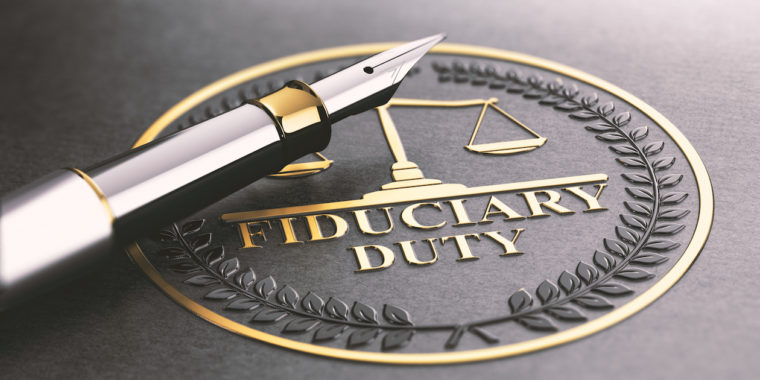Administering a retirement plan and managing its assets requires certain actions and involves specific fiduciary responsibilities. If you make decisions that impact your organization’s retirement plan, you’re likely considered a fiduciary under the Employee Retirement Income Security Act of 1974 (ERISA). With the current scrutiny over retirement plan litigation, it is imperative that plan fiduciaries understand their responsibilities and adhere to ERISA’s standards. Learn more about who is considered a fiduciary, their fiduciary responsibilities, and how to fulfill their responsibilities to their participants.
A Closer Look at Funds and Fees
Meeting Your Fiduciary Responsibilities
Managing a 403(b) plan isn’t easy. Since 2006, the Department of Labor’s regulation of 403(b) plans has become increasingly complex and time consuming. Recent regulations, in effect since 2012, are the fee disclosure regulations, which require schools to determine if the fees paid to investment managers and retirement plan service providers are “reasonable.” Unfortunately, the Department of Labor did not create a template or checklist for plan sponsors, so this interpretation is sometimes challenging.
Why Add ESG Funds to Your Investment Menu?
An increasing number of investors want impact-driven investment vehicles. They want to avoid investing in companies that avoid diversity and inclusion, abuse labor, produce products or provide services that cause health or safety problems, or pollute the environment. However, trying to bypass such companies can make investing in many mutual and index funds a challenge. Because of this, environmental, social, and governance (ESG) funds are increasing in popularity, especially among younger investors. According to a survey conducted by Callan Institute, incorporation of ESG factors into the investment decision-making process increased to 42% in 2019 compared to 22% in 2013. But is it cost-effective and a good fit to include ESG funds in your plan’s investment menu? Learn more about ESG and how you should proceed if you’re interested in adding ESG funds to your investment line up.
What Plan Sponsors Should Know About Lifetime Income Solutions
The number of U.S. workers who are covered by a defined benefit pension plan dropped by nearly half between 1980 and 2008, from 38 to 20 percent, and continues to steadily decline. More employers have adopted a defined contribution plan, which shifts the responsibility of saving and making investment decisions to their employees. However, many participants underestimate how much they should have in retirement and can deplete their resources much sooner than planned. Thus, in the absence of a pension plan, the need for retirement lifetime income solutions is evident. What should plan sponsors know about adopting and implementing lifetime income solutions in their plan?
Why You Should Hire a 3(38) Fiduciary
For many plan sponsors, designating an ERISA 3(38) investment manager to manage, select, and monitor the retirement plan’s investments can be beneficial. It allows the plan sponsor to have more time and attention to focus on other aspects of the organization along with managing tasks that are otherwise difficult to outsource. There are many benefits if you decide to hire a 3(38) fiduciary, but it’s important to understand the advantages (and disadvantages) of their role and the questions you should ask when vetting an investment advisor/manager to take on the role for your retirement plan.
- « Previous Page
- 1
- 2
- 3
- 4
- 5
- …
- 21
- Next Page »





